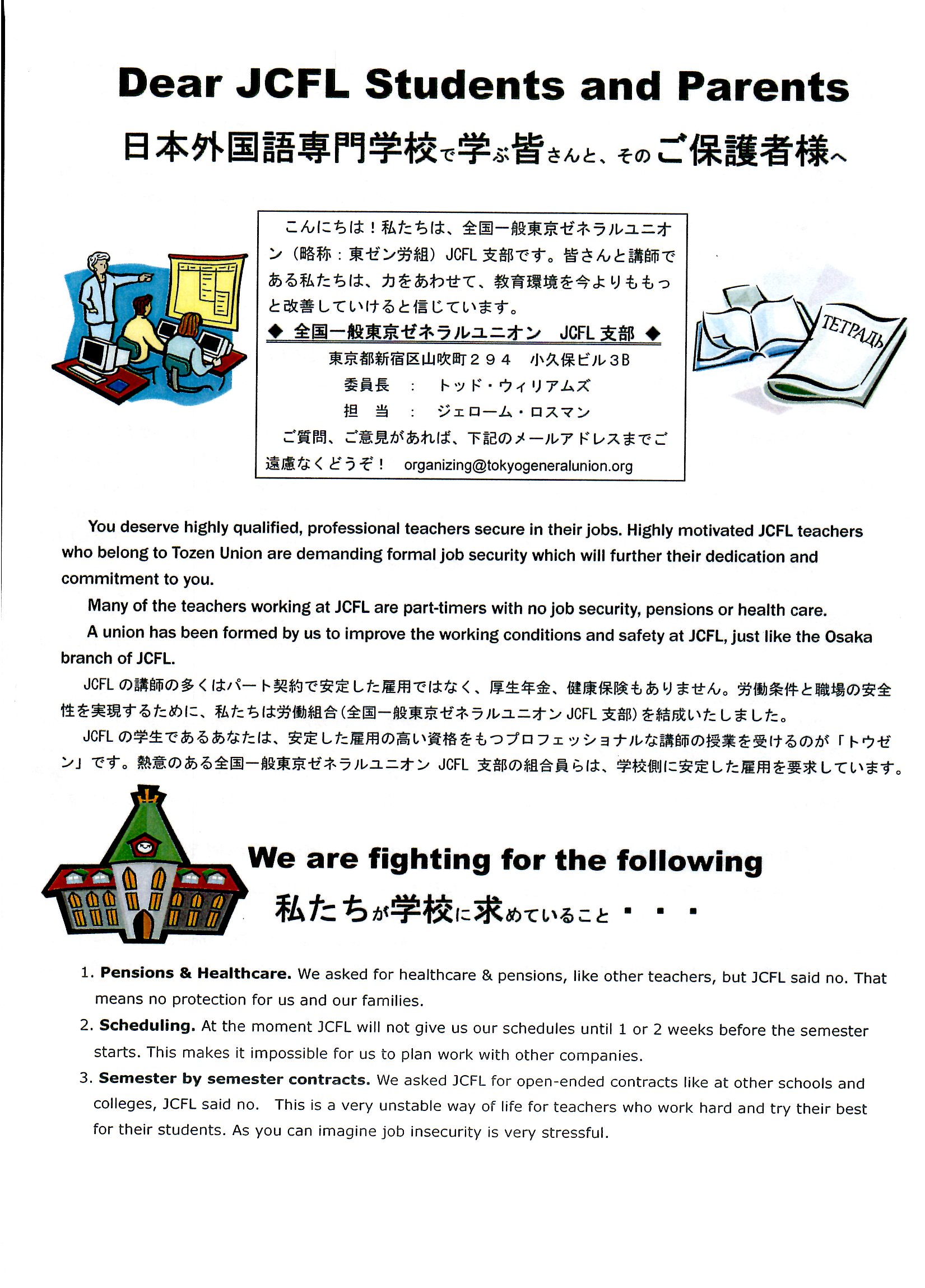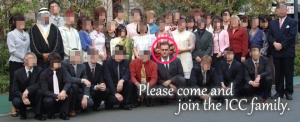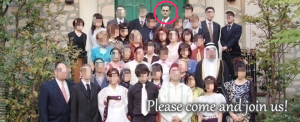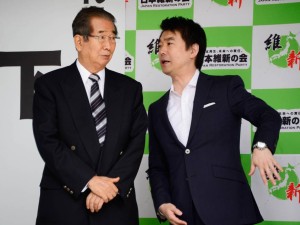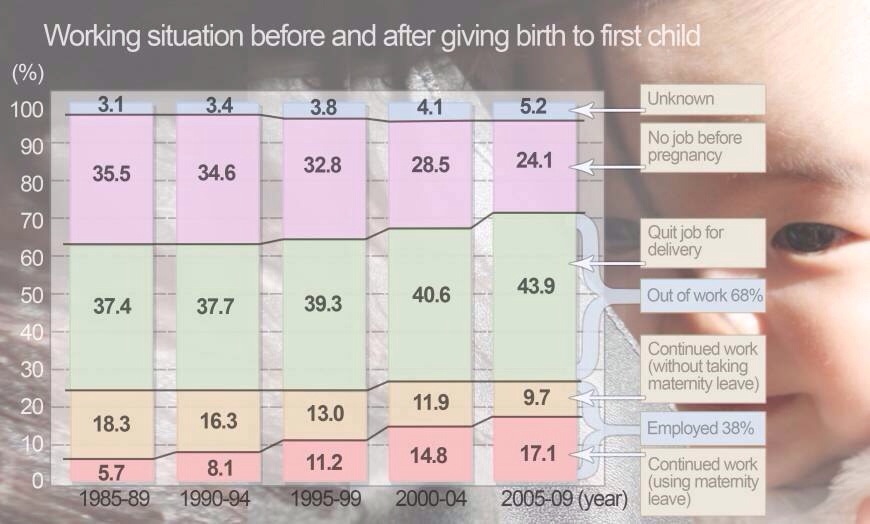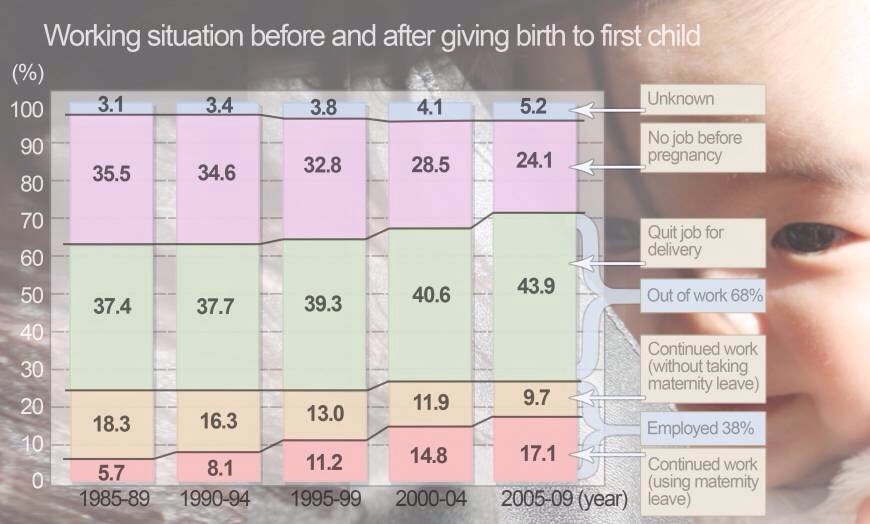By Hifumi Okunuki
In the show, Yuko Takeuchi plays a stubborn, by-the-book labor standards inspector named Rin Danda who loathes letting even the slightest infraction slide, making for some awkward, tense moments when she comes up against her more see-no-evil, hear-no-evil coworkers. Perhaps not surprisingly, never before has a TV show starred a labor standards inspector; before this series went on air, most people probably had no idea what they do.
Takeuchi told a magazine, “I never even knew the job of labor standards inspector existed until I got this role.” It’s not that the actress knows less than the average citizen; it’s that the job was nearly invisible and played no role in the quotidian lives of most people.
That said, recent high-profile cases of restructuring layoffs, unfair dismissals, long work hours, karōshi (death from overwork), karō jisatsu (overwork-induced suicides), incidents of sexual and power harassment, workplace bullying and other sometimes-life-or-death issues (the list goes on and on) suggest it was high time to shine a light on this invaluable profession. TV has regained meaning in my life — and, I hope, in the lives of others.
Tackling such a serious, inherently boring topic and attempting to turn it into a bundle of laughs for TV must have been quite a challenge — and a risk — for the producers. They have done all that and more. The show says a great deal about Japanese office politics and corporate practices that are long overdue some serious scrutiny.
Today some 52 million workers toil at about 4.3 million workplaces in Japan. First and foremost, labor standards inspectors are responsible for all these workers’ lives, safety and health. On top of that, they are supposed to ensure that working conditions comply with all relevant labor laws and regulations. They must pass a civil servants’ exam before being placed at one of the many labor standards inspection offices dotted around the country.
Inspectors have the right to regularly conduct compulsory spot raids on companies to investigate their records. They also have judicial police powers to seize assets to cover unpaid wages and even to arrest violators. They are often called “labor cops,” which would seem to be a pretty fair description.
With all these powers at the disposal of labor inspectors, you could be forgiven for imagining Japan must be a workers’ paradise where employee protections are universally respected. The sad fact, however, is that Japan is awash with rogue bosses who think of nothing but their bottom lines and how they can squeeze every last ounce of production from their workers. Ironically, the extraordinary enforcement powers inspectors have are precisely what makes them hesitant to act.
There is even a jargon term for useless inspectors who make their rounds to each company, take a quick glance around the workplace and leave: kyoro-kan. The word kyoro means to glance around, while kan means inspector. I wouldn’t dream of suggesting that all inspectors are kyoro-kan, but I have encountered several unmotivated inspectors in the past who did their best to discourage, dishearten and dissuade workers who had mustered the courage to blow the whistle on their bosses.
However, the biggest problem is systemic rather than personal. First, there are far too few inspectors. Tokyo Shimbun’s evening edition on Nov. 11, 2012, ran the headline “Tokyo’s 23 wards have one inspector for every 3,000 workplaces.” Such a ratio precludes thorough enforcement. Yet the government is pushing for further cuts and reduced hiring. Even the passionate few inspectors must feel powerless when faced with such daunting numbers. To do their job properly, they would have to — no irony intended — work themselves to death.
Here, I’d like to introduce an ongoing court case brought on Feb. 22, 2011, by the family of a 24-year-old man who killed himself due to working excessive overtime. He joined construction company Shinko Plantech in 2007 and supervised repair construction.
Working more than 40 hours a week of overtime violates the Labor Standards Law unless management has signed an Article 36 agreement (saburoku kyōtei) with a union or employee representing a majority of the workforce. Employers must register such agreements with their local labor standards inspection office (rōdō kijun kantokusho).
Guidelines limit overtime hours to 45 per month with exceptions, including construction. Shinko Plantech signed a saburoku kyōtei with the union for 200 extra hours per month. The worker could not handle the stress and killed himself a few months after hitting 218 hours of overtime work per month.
The family didn’t just sue the company; they also sued the labor standards inspection office for accepting such an outrageous saburoku kyōtei agreement — and even the labor union for signing it. It is the first lawsuit against a labor union for a karō jisatsu. The plaintiffs are asking for ¥130 million in damages, and the district court verdict is expected any day now.
In terms of overtime hours, the Ministry of Health, Labor and Welfare has drawn a line beyond which they believe workers face a high danger of death from overwork. That line is 80 hours for two to six months straight, or 100 hours for even one month. Shinko Plantech blew that number out of the water with their deal capping overtime at 200 hours per month — and they didn’t even comply with that number. The labor union then signed this deal — a pact that would make even yellow unions blush.
So what’s to be done? I think we need to get back to basics. We must never allow workers to work themselves into an early grave. Period. Let’s learn from Rin Danda, who unflinchingly and unapologetically squares off against scofflaw employers in the name of her prime directive: protecting workers. Even when her coworkers make fun of her dedication, she retorts, “I’m just doing my job.”
Yes, indeed, the job of a labor standards inspector is to protect the lives of workers. With that in mind, the central government must hire more inspectors so that they can take heart from the example of Rin Danda and pride in protecting Japan’s 52 million workers.
See Philip Brasor’s Oct. 20 Media Mix column, “Imagining civil servants who actually serve,” for more on “Dandarin.”
Hifumi Okunuki teaches at Sagami Women’s University and serves as the executive president of Tozen Union (Zenkoku Ippan Tokyo General Union). She can be reached attozen.okunuki@gmail.com. On the second Thursday of the month, Hifumi looks at cases in Japan’s legal history to illustrate important principles in labor law. Send your comments and story ideas to community@japantimes.co.jp.

